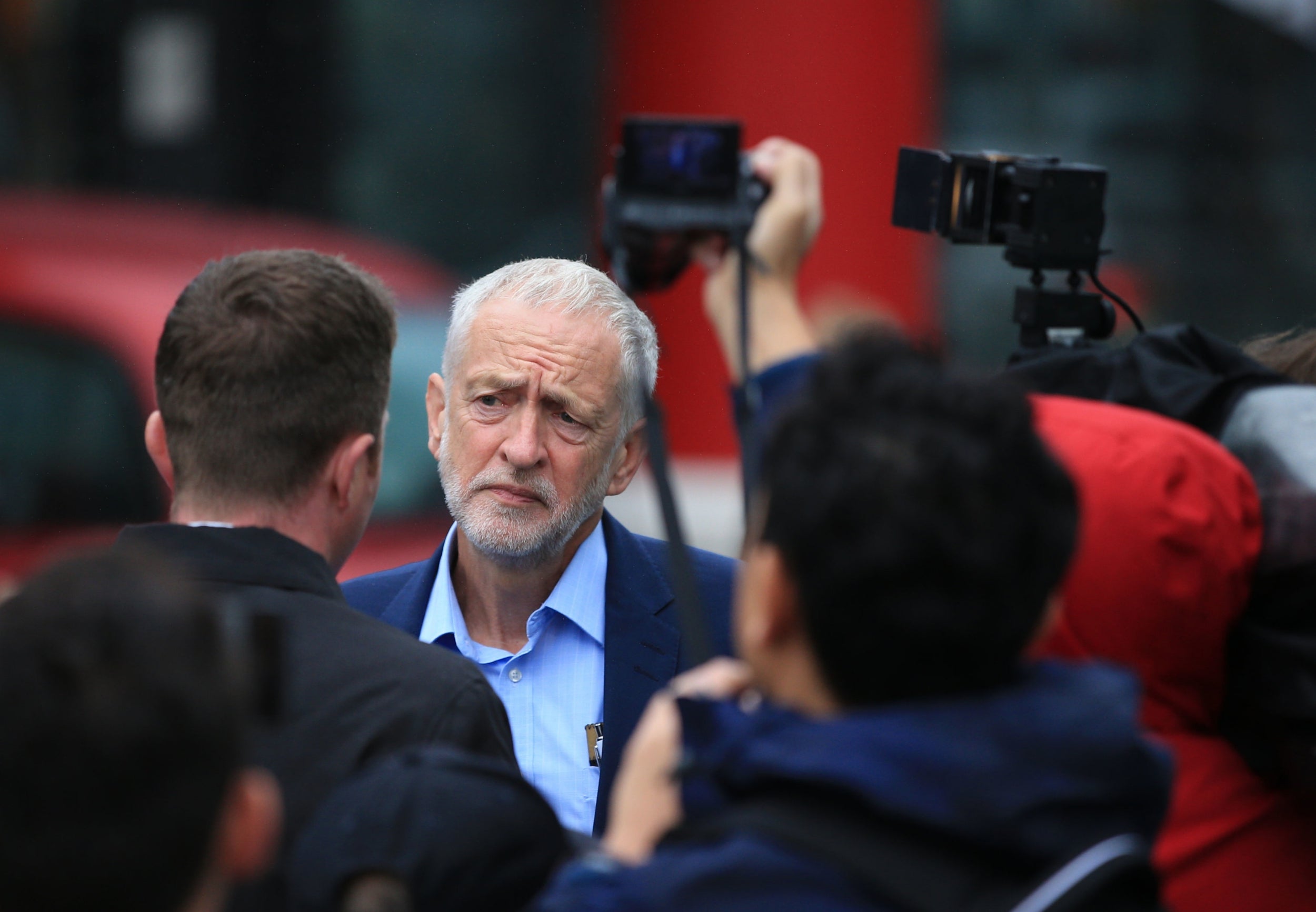Now the unions back a Final Say referendum, how much longer can Jeremy Corbyn hold out?
Inflexible and stubborn, the Labour leader is now at odds with much of his party. His shadow chancellor, by contrast, has his eyes firmly on the path to power


The TUC conference in Manchester, which ends today, has edged the UK a step closer towards a Final Say referendum on Brexit. The unions might not enjoy much power, but they do influence Labour policy, so their decision matters: if there is to be a Commons majority for a referendum, it will require the Labour opposition and Conservative pro-Europeans to join forces.
The spotlight now turns to whether the Labour conference matches the unions when it gathers in Liverpool in 11 days’ time.
Many hours of blood, sweat and tears will be expended on trying to find a formula to keep everyone in the Labour family happy. It won’t be easy. Supporters of a referendum are jubilant the TUC pledged to throw its full weight behind a final say if Labour fails to secure a general election or Theresa May’s deal fails to protect working people – both hurdles that are unlikely to be cleared.
“The odds are that the Labour Party is more likely than not to reflect what has been decided at the TUC conference,” Manuel Cortes, general secretary of the TSSA rail union, told me. A year ago, he was pretty isolated on a referendum; not now. He is “absolutely delighted” about the TUC’s decision, saying: “This issue is too important to be left to politicians. The people gave the mandate for Brexit; now they must sign off its terms.”
Cortes is a close ally of Corbyn. But on Brexit, the Labour leader is out of tune with many of his natural soulmates. “We must respect the 2016 referendum,” he told the Parliamentary Labour Party on Monday, rejecting pressure from MPs to change his line. One pro-EU Labour MP said afterwards: “Jeremy is basically a Brexiteer at heart.”

As the debilitating row about antisemitism showed, Corbyn can be inflexible and stubborn. In contrast, his closest ally John McDonnell, the shadow chancellor, displays a welcome pragmatism. He was quicker than Corbyn to spot the dangers on antisemitism. He has had a much higher media profile than Corbyn lately, and looks like a man determined to clear any obstacle on Labour’s path to power.
In the eyes of referendum supporters, McDonnell’s more flexible language on giving the public the final say is just as significant as the unions warming to the idea. Labour is on the move, albeit in tiny footsteps. It has gone from ruling out a referendum to not ruling out any option, to keeping all options – including a people’s vote – on the table. This is often how U-turns are made, in slo-mo.
Several shadow cabinet members now back a referendum. Motions from constituency parties, calling for the Labour conference to debate the proposal, are flooding in to party HQ, so there will probably enough to force one. Hence the efforts to find a conference statement acceptable to all. Sir Keir Starmer, the shadow Brexit secretary, was in Manchester to find out what the unions could live with.
Labour’s top-line demand will be the motherhood and apple pie of a general election. But that will not get the party very far because Tory MPs would have to vote for one; denying Corbyn a chance to get into Downing Street is just about the only thing on which their warring tribes agree.
So Labour can’t avoid the “what if there’s no election?” question, and this is where is gets tricky. Corbyn knows that Theresa May would accuse him of denying the will of the people if he moves towards a referendum. Understandably, he frets about alienating Labour supporters who voted Leave. But referendum backers insist the electoral arithmetic is changing, as the consequences of Brexit become clearer; they claim 75 per cent of Labour’s members and voters now support a referendum. Some Labour MPs whose seats voted Leave two years ago will come out for a Final Say vote.
Campaigners for a second referendum are adamant they are not part of an anti-Corbyn movement or even, as some Labour Leavers claimed after Tony Blair’s latest intervention, an embryo for a pop-up centre party. Indeed, the cross-party campaign ranges from Tory former cabinet ministers to many inside the Corbyn cheerleading team Momentum.
But they will appeal to Labour delegates in Liverpool by arguing that (in contrast to 2016) Brexiteers such as Boris Johnson, Jacob Rees-Mogg and Nigel Farage are now the “elite”; those opposing Brexit are the insurgents, not the establishment. They will highlight the dangers for Labour in conniving in a Tory hard Brexit – so damaging for the economy that even an incoming Corbyn government could not end austerity, rescue public services or boost wages and workers’ rights, as McDonnell promised in his TUC speech on Tuesday.
These are powerful arguments. Corbyn should listen to many of his friends – including McDonnell. Don’t expect the Labour conference to come out all guns blazing for a referendum. But Labour will probably tiptoe towards it, putting the party in a position to demand the people have the final say if there is deadlock in parliament, which is very possible.
Join our commenting forum
Join thought-provoking conversations, follow other Independent readers and see their replies
Comments
Bookmark popover
Removed from bookmarks